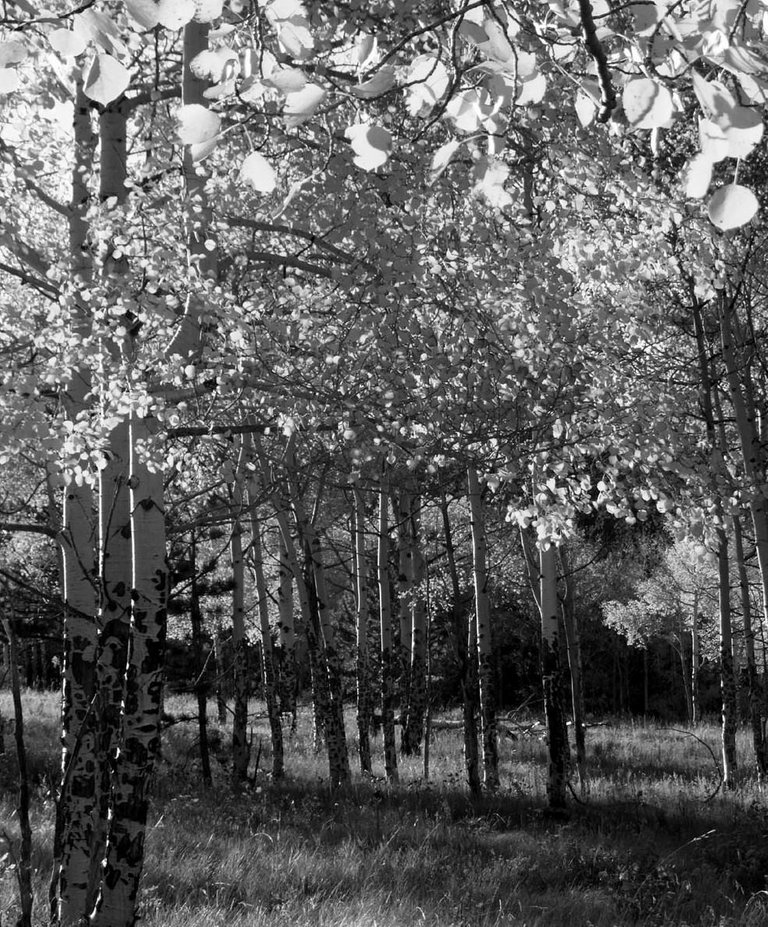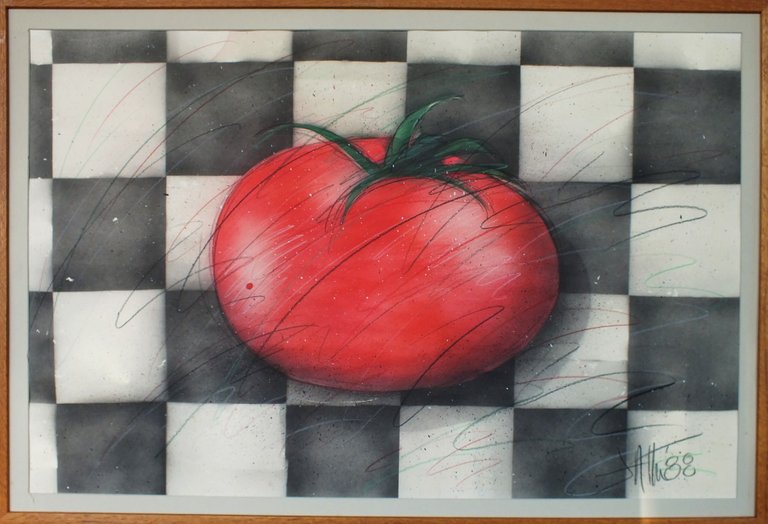Art is a funny business.
In some ways, it is quite unlike other things in that it can be a product, a commodity, a collectible... and — at the same time — none of the above.
In running an art gallery, we often end up working with artists who — quite literally — come in and ask us to help them price their work.
Meanwhile, we also deal with the somewhat fickle thing known as the "Secondary Market," in which collectors and art lovers try to sell their art collections.
Setting a Price
The first thing to understand is that "setting a price" when you're an artist selling a piece of your work is quite different from the "value" of a piece of art.

"Aspen Grove"
Simply setting a price for a new piece of work that has not previously been in the marketplace involves a number of factors, ranging from the amount of time you have invested in the piece, to materials, to your existing reputation and body of work.
Although pricing work is often tricky for artists, experience makes the process somewhat easier.
As gallery proprietors, it can be an interesting process to follow, as we get to sometimes see fairly similar work, but artists of similar experience and reputations... yet the work is priced magnitudes apart. In our capacity as sometime "consultants," we often have to help arrive at a price that bridges the gap between "hope," "fair compensation" and a realistic chance of making sales.
Prices and "Worth"
Where the art market gets tricky is when we get to the so-called "aftermarket."

"Fiery Sky"
This is where many art collectors and enthusiasts often get their wake-up calls. The thing that happens is that this is where we discover that there is often a substantial difference between the price originally paid for art at a gallery, and the price obtainable in a collector-to-collector sale.
The tough pill to swallow is that we get approached — for example — by someone who tells us they "paid $2000 for this painting by a young and upcoming artist five years ago," and now we get to tell them that the painting might be worth $500... on a good day.
The sad truth is that most art doesn't actually appreciate in value. Which can be difficult to understand for those who see art mostly as "an investment." Personal experience tells us that maybe 5-10% of artists end up with long and solid enough careers that their work consistently rises in value and is "in demand," in the secondary market.
"Worth" and "Value"
The issue becomes even more cloudy and confusing when it comes to establishing the "worth" or "value" of someone's art collection — for example, for insurance purposes.

Original Jay Worth Allen painting from 1988
The irony here is that the "worth" of a piece of art if you were needing to try to replace it tomorrow (say, after a theft, or fire) tends to be multiples higher than the "value" of the same piece of art if you were instead trying to sell it, tomorrow.
Again, this is often a place where we end up with upset clients because they will point to some insurance papers with a valuation and exclaim "But is says right here it's worth $5,000!"
We have recently been dealing with these types of dichotomies, ourselves, with a painting of our own we've decided to sell. It's by a somewhat well know artist — Jay Worth Allen — whose original pieces currently are on the market for between $2,500 and $12,000. And yet? It's almost impossible to find a buyer for this painting at any price-- currently our top offer has been $500.
Buy Art Because you LIKE it!
Potential art buyers occasionally come in the gallery and will ask lots of questions about an artist and their work, eventually leading to the question "Will this be a good INVESTMENT?"

"Frozen Pond"
Our standard answer is "no," followed by the explanation that art markets are notoriously fickle... and not only are most pieces unlikely to appreciate in value, but popular styles, fashions and trends change considerably. So it's a high-risk endeavor.
Ultimately, we will only recommend to people that they should "buy art because they LIKE it."
Are there exceptions?
Of course there are! But we can't necessarily predict them. The closest to a "sure thing" we get is when an established and popular artist with a long career and a fan base announces their retirement. We recently had one of our artists decide to stop (for health reasons)... after which her remaining paintings suddenly started selling much faster.
But that's a rarity and an exception.
So let's repeat: BUY ART BECAUSE YOU LIKE IT!
Thank you for reading! Red Dragonfly is a proud member of the @sndbox creative initiative.

The Red Dragonfly is an independent alternative art gallery located in Port Townsend, WA; showcasing edgy and unique contemporary art & handmade crafts by local and worldwide artists. All images are our own, unless otherwise credited. Where applicable, artist images used with permission.
Good info, I have often wondered about the idea of art as an investment but there was no way it could be easy. Art should be for the love of the experience, not the investment! Makes you wonder what the motivations of the buyers are for multimillion dollar works of weird art...
Hi Matt, for those high profile people who buy Picasso, it's as much as anything about their own little "status matches" to see who's more powerful. Do they care about the art itself? I honestly don't know. Part of what makes art a dodgy proposition as an investment is that fashions change. You buy "Modern" because it's suddenly hot. But then someone decides Modern is OUT and Impressionism is IN. Suddenly your $50K investment become a hard sell at $20K. It's a bit like trying to predict which cryptos are going to go up when....
This is a good read.
I am wondering though, when you say
Can you tell us a bit more about it ? Why quite similar artists have different prices ? Is it based on time ?